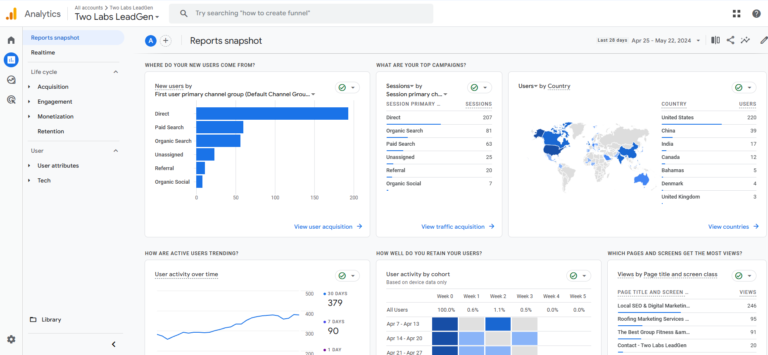Table of Contents
ToggleAre you wondering about the various factors that can impact your mobile search rankings? Whether you are a business owner, digital marketer, or SEO specialist, understanding the key influences on mobile search rankings is crucial for optimizing your online presence. From website speed and mobile-friendliness to user experience and content relevance, there are numerous elements that can affect how your website ranks in mobile search results. By delving into the intricacies of these influences, you can improve your overall visibility and drive more organic traffic to your mobile site. In this blog post, we will explore the diverse array of factors that can impact your mobile search rankings and provide actionable insights for enhancing your mobile SEO strategy.
Key Takeaways:
- Relevance: The relevance of your content to the search query is key to mobile search rankings. Make sure your content is optimized for mobile and directly answers the user’s query.
- Mobile-Friendliness: Mobile-friendliness is a significant ranking factor for mobile searches. Ensure your website is responsive and provides a seamless user experience on mobile devices.
- Page Loading Speed: The loading speed of your mobile pages can impact your search rankings. Optimize your website for fast loading times to improve your mobile search visibility.
Technical Factors
Some technical factors can influence your mobile search rankings. It’s important to pay attention to these aspects in order to ensure your website is optimized for mobile search.
- Mobile-Friendly Website Design
- Page Loading Speed
- Mobile Usability
Assume that neglecting these technical factors can harm your website’s mobile search rankings.
Mobile-Friendly Website Design
Any mobile search ranking strategy should prioritize a mobile-friendly website design. This means ensuring that your site is easily accessible and navigable on all mobile devices. A responsive design that adapts to different screen sizes is crucial for providing a positive user experience.
Page Loading Speed
Website page loading speed is a critical factor in mobile search rankings. A slow-loading website can frustrate users and lead to high bounce rates. Ensuring that your pages load quickly on mobile devices is essential for maintaining a strong mobile search presence.
Mobile-friendly websites with fast loading speeds are more likely to rank higher in mobile search results. Google’s emphasis on mobile-first indexing means that websites with slow loading speeds may be penalized in mobile search rankings.
Mobile Usability
Speed and usability go hand-in-hand when it comes to mobile search rankings. A website’s mobile usability refers to how well it functions on a mobile device, including factors such as ease of navigation, readability, and interactivity. A seamless mobile user experience is crucial for maintaining high mobile search rankings.
To improve mobile usability, ensure that your website’s design is responsive and that content is easily accessible on mobile devices. Optimizing for mobile usability can enhance the overall user experience and boost your mobile search rankings.
On-Page SEO for Mobile
Now, let’s delve into the world of on-page SEO for mobile. With the increasing number of mobile users, it’s crucial to optimize your website for mobile search rankings. This means focusing on aspects such as content optimization for mobile users and meta tags for better mobile SERP display.
Content Optimization for Mobile Users
To cater to the growing number of mobile users, it’s essential to optimize your content for their experience. This includes creating easily digestible and scannable content, using smaller paragraph lengths, and incorporating relevant keywords for mobile search queries. Additionally, ensure that your images and videos are optimized for mobile viewing, with fast loading times and responsive design for different screen sizes.
Meta Tags and Mobile SERP Display
Sentences need to be crafted carefully to maximize their impact on mobile search results. This includes optimizing your title tags and meta descriptions to be concise, engaging, and relevant to mobile users. Additionally, utilize mobile-specific meta tags, such as viewport and mobile-friendly tags, to ensure that your website is properly displayed on various mobile devices. Optimizing meta tags for mobile can significantly improve your website’s visibility and click-through rates in mobile search results.
Markup languages such as Schema.org and JSON-LD can also enhance your mobile SERP display, providing search engines with additional context about your products, personas, and subjects. By incorporating structured data markup, you can improve the visibility and relevance of your website in mobile search results.
Local SEO and Mobile Search
To ensure your mobile search rankings are maximized, it’s important to understand the impact of local SEO. With the increasing number of users turning to their mobile devices to find products, personas, and subjects, local SEO plays a crucial role in determining mobile search rankings. By focusing on local SEO, businesses can effectively optimize their online presence for mobile searches and improve their rankings on mobile search results pages.
What is the Importance of Local SEO for Mobile Rankings?
One of the key factors influencing mobile search rankings is the proximity of a business to the searcher’s location. Local SEO helps businesses enhance their visibility for users searching for products, personas, and subjects in their area. By prioritizing local SEO efforts, businesses can ensure that their mobile search rankings accurately reflect their relevance to potential customers in nearby locations, ultimately driving more foot traffic and online conversions.
Local Search Optimization Strategies
Rankings on mobile search results pages are influenced by a variety of local search optimization strategies. By optimizing your Google My Business profile, managing online reviews, and implementing location-based keywords, businesses can improve their visibility in local mobile searches. Additionally, creating localized content and utilizing structured data markup can further enhance a business’s presence in mobile search rankings, ultimately increasing its chances of connecting with local customers.
Search engines prioritize businesses that have accurate and consistent NAP (name, address, phone number) information across online platforms. By ensuring that your business’s NAP information is consistent and up to date, you can improve your visibility in local mobile searches and attract more potential customers to your products, personas, and subjects.
User Experience and Behavior Signals
After creating high-quality content and optimizing your website for mobile, the next crucial factor that influences your mobile search rankings is user experience and behavior signals. Search engines like Google consider how users interact with your website and the overall experience they have when determining mobile search rankings.
Click-Through Rate Impact
For products to rank well on mobile search, it’s essential to have a high click-through rate (CTR). This metric measures the percentage of users who click on your website’s link when it appears in search results. A high CTR indicates that your website is relevant and valuable to users, which signals to search engines that it should be ranked higher.
User Engagement Metrics
User engagement metrics like bounce rate, time on page, and pages per session give search engines insight into how users interact with your website. A low bounce rate and high average time on page signal that users find your website engaging and valuable, which can positively impact your mobile search rankings. It’s important to focus on creating a seamless and enjoyable experience for personas, as this can lead to improved user engagement metrics and ultimately higher search rankings.
For instance, ensuring fast page load times, mobile-friendliness, and easy navigation are essential for enhancing user experience and behavior signals. By optimizing for these factors, you can improve your mobile search rankings and attract more traffic to your website.
Mobile-First Indexing by Search Engines
Not too long ago, search engines primarily used the desktop version of a website to determine its ranking in search results. However, as mobile usage continues to rise, search engines have shifted to a mobile-first indexing approach. This means that they now prioritize the mobile version of a website for indexing and ranking, recognizing the importance of mobile-friendly experiences for users.
Understanding Mobile-First Indexing
The shift to mobile-first indexing means that search engines will predominantly use the mobile version of your website for ranking and indexing. This is a significant change from the previous desktop-first approach. It’s crucial to understand that having a mobile-friendly website is no longer just a nice-to-have, but a necessity for maintaining and improving your search rankings. This shift reflects the reality of how people access information on the internet and emphasizes the importance of delivering a seamless mobile experience to users.
Preparing Your Site for Mobile-First Indexing
To prepare your site for mobile-first indexing, prioritize mobile responsiveness and ensure that your site functions seamlessly across a variety of mobile devices and screen sizes. This includes optimizing page load times, creating content that is easily accessible and readable on mobile screens, and ensuring that all interactive elements are mobile-friendly. Additionally, focus on improving the overall mobile user experience to align with search engines’ mobile-first approach and provide valuable content to mobile users.
Plus, consider implementing responsive design, optimizing images for mobile, and utilizing mobile-friendly formats such as Accelerated Mobile Pages (AMP) to enhance your site’s mobile performance and visibility. By incorporating these strategies, you can effectively adapt to the shift towards mobile-first indexing and improve your mobile search rankings.
The Role of Social Signals
Your mobile search rankings are influenced by a variety of factors, and one important aspect to consider is the role of social signals. Social signals refer to the activity and engagement on social media platforms that can impact your website’s visibility and ranking on mobile search results.
Social Media Integration
Any successful mobile search strategy should include a strong social media integration. By connecting your website to social media platforms such as Facebook, Twitter, and Instagram, you can increase your online presence and make it easier for users to share and engage with your content. This integration can contribute to higher social signals, which in turn can positively impact your mobile search rankings.
The Influence of Social Engagement on Mobile Search Rankings
Engagement on social media platforms plays a significant role in determining your website’s mobile search rankings. The more likes, shares, and comments your content receives on social media, the stronger the social signals associated with your website become. This, in turn, can lead to improved visibility and ranking on mobile search results, making it crucial to focus on creating engaging and shareable content for your target audience.
The role of social engagement in mobile search rankings is undeniable. An active presence on social media, along with high engagement levels and user interactions, is essential for improving your website’s visibility and ranking on mobile search results. By prioritizing social media integration and fostering meaningful engagement with your audience, you can effectively leverage social signals to boost your mobile search rankings and drive organic traffic to your website.
Future Trends in Mobile Search
Keep ahead of the game by staying informed about the upcoming trends in mobile search. Understanding the future of mobile search will help you optimize your website and content to best meet the needs and preferences of mobile users.
The Rise of Voice Search and Digital Assistants
The future of mobile search is heavily influenced by the rise of voice search and digital assistants. As technology continues to advance, more and more users are opting for the convenience of speaking their search queries instead of typing them out. Digital assistants like Siri, Alexa, and Google Assistant are becoming increasingly common, and are changing the way users interact with search engines.
The integration of voice search and digital assistants into the mobile search landscape means that websites and content creators will need to optimize for long-tail, conversational keywords and provide structured data that can easily be read and understood by these virtual assistants.
Integrating with the Mobile Ecosystem
On the horizon is a greater emphasis on integrating with the mobile ecosystem. As mobile technology continues to advance, the line between online and offline experiences is becoming more blurred. This means that mobile search will not only take into account a user’s search history and preferences, but also their current location, activities, and even their offline interactions with other devices and objects.
For instance, websites and apps that seamlessly integrate with wearable devices and smart home systems will have an advantage in mobile search rankings. As users become more reliant on their mobile devices for various aspects of their lives, search engines will prioritize websites and content that are part of this interconnected mobile ecosystem.
Conclusion
Considering all points, it is clear that a multitude of factors influence mobile search rankings. From website performance and mobile-friendliness to relevant and high-quality content, there are many elements that search engine algorithms take into account when determining the ranking of mobile search results. Additionally, user experience and engagement metrics also play a crucial role in influencing mobile search rankings. As mobile usage continues to dominate internet traffic, it is essential for businesses to prioritize mobile optimization and adhere to best practices for improved search visibility and user experience.
By understanding the various influencing factors and consistently working towards mobile optimization, businesses can improve their chances of ranking well in mobile searches. This requires continuous monitoring and adjustments to ensure that a website meets the criteria for mobile search ranking success. Overall, staying updated with the latest mobile search trends and implementing effective strategies is key to achieving and maintaining high mobile search rankings in today’s digital landscape.












